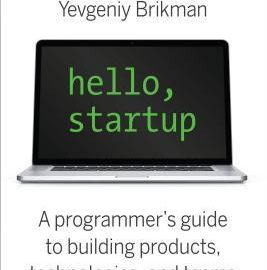Disclosure: I may earn affiliate revenue or commissions if you purchase products from links on my website. The prospect of compensation does not influence what I write about or how my posts are structured. The vast majority of articles on my website do not contain any affiliate links.
While a sophomore at Lehigh, I noticed a massive increase in interest in the school’s entrepreneurship classes. Offered through the Baker Institute for Entrepreneurship, Lehigh’s ever-expanding roster of experiential and classroom engagement courses is offered to students from all three colleges: Engineering, Business, and Arts & Sciences. The masters program in Technical Entrepreneurship was recently added and has already produced home-run success stories such as KitRex.
When I mentioned that I was thinking about taking an Entrepreneurship course to a friend who was also studying Computer Science, he was highly critical. His response revolved around his belief that the classes would be filled with “The Next Facebook” types who never had and never would write a single line of software. Further, he didn’t think that the elements of entrepreneurship could be properly transmitted in a controlled environment, namely a traditional classroom.
I disagreed with him on both points, but he ended up being half right. Two years later and with an Entrepreneurship minor as a nice addendum to my degree, I must admit that I encountered quite a lot of people who wanted to found software startups but had no interest in learning how to code. In fact, at Lehigh, the ratio of qualified engineers looking to found their own or get involved with startups to non-technical students seeking programmers for their ideas was astoundingly low. Everyone brought the same passion, though, and only twice did I receive a job pitch that resembled one of these. Each of my experiences deserves its own article.
Can entrepreneurship be taught? By “entrepreneurship” I’m talking about value creation as ideas are transformed into concrete prototypes which then may become viable business ventures. At its core, entrepreneurship has nothing to do with software, it just happens to be the easiest and most scalable space to put ideas into action. Can we teach people how to be better, more successful, more well-rounded entrepreneurs? My answer is yes, though with several caveats.
First of all, you can only learn so much in a classroom. You have to put it into practice after a certain point. While you might do this by writing a proof in a math class, when it comes to entrepreneurship, you have to, well, do something entrepreneurial! It doesn’t matter that you’ll have training wheels on, plenty of ventures, in fact, I’d go as far as saying that the majority of ventures coming out of Lehigh over the last few years, have been spawned out of entrepreneurship class projects or have been bolstered by higher-level, more specialized courses at Baker.
When you know nothing, anything helps. While it’s cool to fly by the seat of your pants and absorb knowledge as it smacks you across the face, having some perspective of the environment you are getting yourself into helps- big time. Before I attended the Lehigh in Silicon Valley program in 2015, I was required to read Venture Deals, the most accessible book on venture capital out there. How many people pursue a startup without having a clue about how to raise money or what a successful exit entails? How many people found a venture without understanding their market or how to grow and scale? How many people pitch an idea before performing a 30-minute exhaustive Google search to prove they really will be first to market?
In Software Ventures, the course I was thinking about taking during my sophomore year, finally got into during my junior year, and served a Teaching Assistant for during my senior year, we learned about as much as we could and then were challenged to rapidly develop our ideas to peer, instructor, and special guest scrutiny on a weekly basis. Our special guests provided lively Q&A to start the class and topics included everything from law to early stage funding to building a team to dropping out of Columbia to falling flat on your face to pivots to dealing with multi-million dollar exits. At the end of the semester, we presented our projects to a panel of judges and several dozen guests. The next morning, some people woke up and decided to go all in on their idea, while others closed the book and started studying for finals. The insular environment of higher education has its benefits: when making the decision, we didn’t have to deal with angry family members who invested in us or apartment rent that was due that week.
While you can’t emulate being out on the wild, some colleges are now combining practical experience with focused classroom learning, which is the next best thing. Lehigh executes this quite well. When it comes to entrepreneurship, doing is great, doing is what moves us all forward, but there are times at which picking up a book or attending a lecture is the best way to progress.




